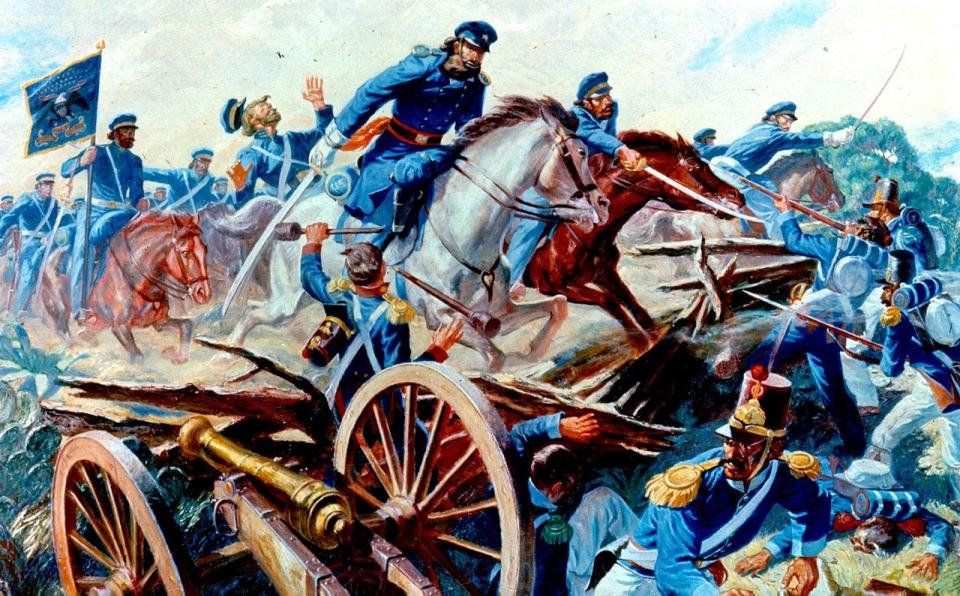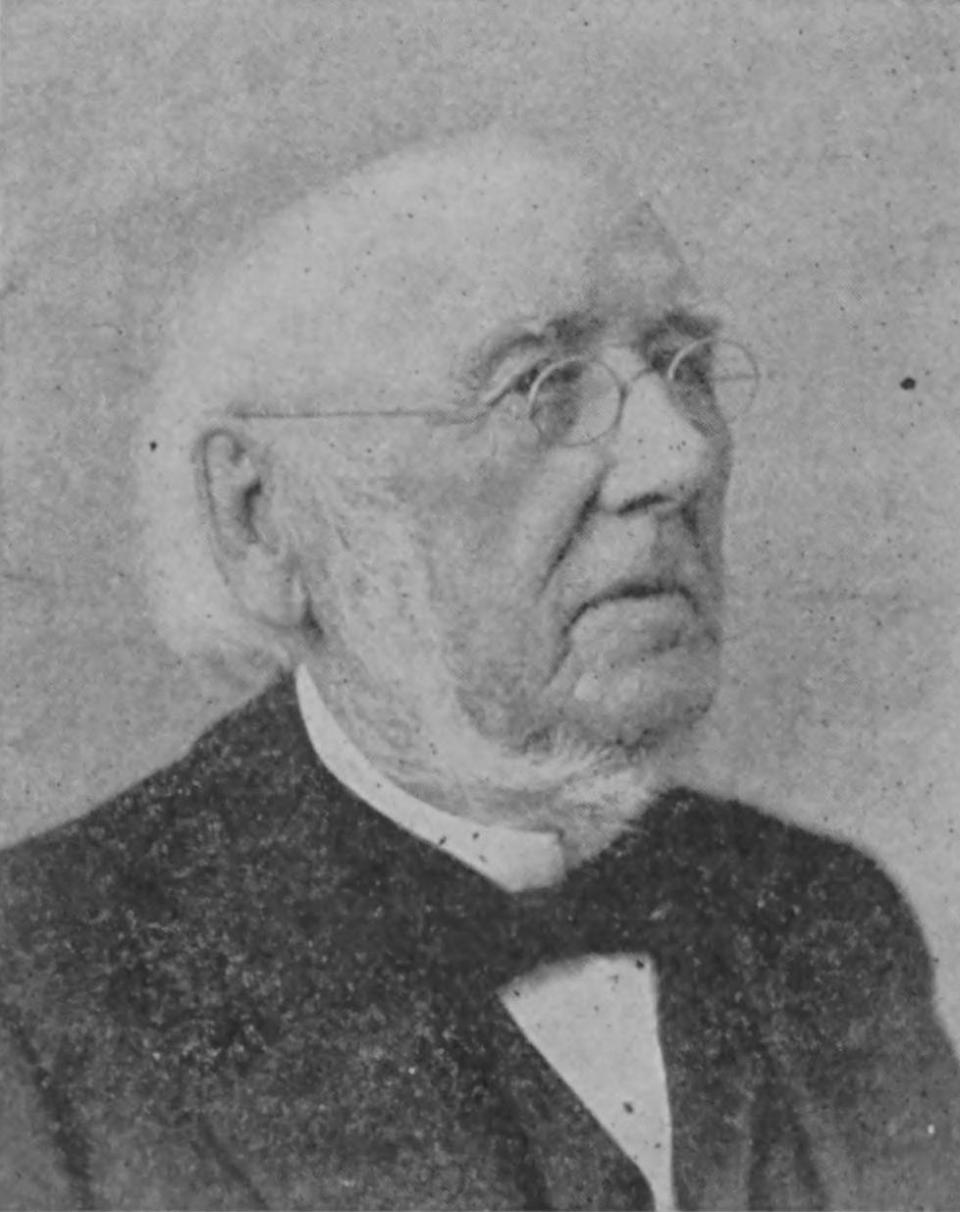Monroe County History: Monroe's Alpheus Felch, troops played roles in Mexican-American War
- Oops!Something went wrong.Please try again later.
While we have profiled at great length on these pages Monroe County’s contribution to fighting the War of 1812 and the Civil War (also known in many northern states of the U.S. as the War of Rebellion), little has been written about the area’s participation in the Mexican-American War. Monroe County and the state of Michigan played a significant role in the conflict. Today, we also highlight the accomplishments of Monroe’s Alpheus Felch – Michigan’s fifth governor – and his role in the war and in moving Michigan’s capital from Detroit to Lansing.
According to the Encyclopedia Britannica, the Mexican-American War – also known as the Mexican War, the Spanish Guerra de 1847 or Guerra de Estados Unidos a Mexico (“War of the United States Against Mexico”), was a war between the United States and Mexico (April 1846-February 1848) stemming from the United States’ annexation of Texas in 1845. Both countries disagreed over whether Texas ended at the Nueces River north of today’s border (the Mexican claim) or the Rio Grande, also known as the Rio Bravo (U.S. claim). The war – in which U.S. forces were consistently victorious – resulted in the United States’ acquisition of more than 500,000 square miles of Mexican territory extending westward from the Rio Grande to the Pacific Ocean.

Michigan sent 13 independent companies (11 infantry and two cavalry), as described in a history authored by the Michigan Department of Military and Veterans Affairs. However, only Detroit's Brady Guards were accepted. The Brady Guards were formed at the end of the Black Hawk War in 1832. These independent companies were sent to garrison the posts at Mackinac and Sault Ste. Marie to free the regular troops stationed there for duty in Mexico. Of the companies tendered for service, four were from Detroit, two from Monroe, three from Lenawee County, and one each came from St. Clair, Hillsdale, Berrien and Wayne (outside Detroit) counties.
Monroe’s Company G, under the 15th Regiment, was led by Capt. Frazey M. Windus. Its troops saw severe action along with members of the regular Michigan army, where Gen. Joseph Rowe Smith Sr. also served with distinction. Joseph Rowe Smith Sr. was the brother of Lydia Ann Smith Roberts and Gen. Henry Smith. Lydia married Colonel E. J. Roberts and they had three children: Mrs. George R. Griswold and twins Juliet and Col. Horace S. Roberts. Both Joseph Rowe Smith Sr. and his brother, Gen. Henry Smith, were distinguished officers and residents of Monroe. Joseph Rowe Smith died in 1868 and is buried in Monroe’s Woodland Cemetery.

Born in Limerick, Maine (then a part of Massachusetts) on Sept.28, 1804, Felch moved to Monroe in 1833 and began practicing law. In 1835, he was the aide-de-camp to Gen. Joseph Brown during the recruitment of troops for the Ohio-Michigan Boundary Dispute (the Toledo War). Felch was elected three times to the Michigan House of Representatives, serving from 1835 to 1837. He was appointed state bank commissioner in 1838 and resigned in 1839. In 1842, Felch was appointed associate justice of the Michigan Supreme Court. He took office as Michigan’s governor on Jan. 5, 1846, and following orchestrating the Mexican-American War troop buildup and successfully moving the capital to Lansing, he was elected by the Michigan Legislature to the U.S. Senate.
Sen. Felch was later appointed by President Franklin Pierce to the Land Claims Commission for California to settle Spanish and Mexican land claims arising from the Treaty of Guadalupe Hidalgo which ended the Mexican-American War. Felch served as president of the commission until 1856.
Tom Adamich is president of Visiting Librarian Service, a firm he has operated since 1993. He also is project archivist for the Greening Nursery Co. and Family Archives and the electric vehicle awareness coordinator at Monroe County Community College.
This article originally appeared on The Monroe News: Monroe men played roles in Mexican-American War

